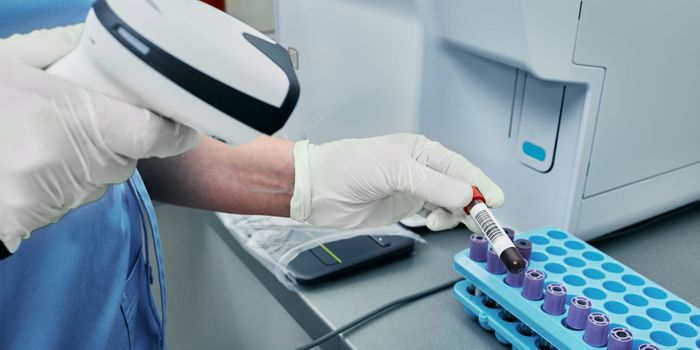Kiss and tell: new test for kissing bug disease
Here’s one Latin lover that you do not want to get kissed by: the triatomine, or “kissing bug”. Known locally as pitos or chipos, these insects get their name for their penchant for biting people’s faces as they sleep at night. One seemingly harmless little “peck” can result in a potentially life-threatening illness known as Chagas disease, caused by the transmission of a protozoan parasite known as Trypansosoma cruzi, as illustrated in the video below.
There are more than 6 million people worldwide with Chagas disease, most of whom reside in Latin American countries. In these rural endemic regions, the lack of access to fully-equipped diagnostic laboratories makes positively identifying and treating Chagas disease particularly challenging.
In the acute phase of the disease, localized swelling at the site of the bite occurs, which can be accompanied by fevers, difficulty breathing and chest pain. If treated with the antiparasitic medication benznidazole during this early phase, the treatment is extremely effective in killing the parasites. However, if left undiagnosed and untreated, T. cruzi can go on to reside in the heart and digestive muscles, where it can wreak havoc, causing heart failure, neurological conditions and enlargement of the colon. At this advanced stage, Chagas disease medications are deemed useless and more costly therapeutics such as pacemakers and anticoagulants are required to manage the illness.
A recent field study conducted in the Gran Chaco region of Bolivia evaluated the potential of a rapid diagnostic test for establishing the presence of T. cruzi infections and has reported promising results in the journal PLOS Neglected Tropical Diseases.
Commercially-available Chagas diagnostics include serological tests, blood smears and polymerase chain reactions -- all of which require patient blood samples, temperature-controlled reagents, specialized biochemistry lab equipment and trained technologists to interpret results. These are simply impractical for widespread application outside of urban centers.
In contrast, the rapid diagnostic method being tested can be performed easily without specialist training, does not require refrigeration, provides diagnostic answers quickly and can work with just a few drops of blood from a finger prick.
Blood samples were collected from almost 700 Bolivian participants by researchers in mobile units, with the objective of testing this rapid diagnostic protocol against commercially-available gold standards. On a positive note, the rapid diagnostic system had a 97% capacity to detect infections, with a specificity (or ability to detect negative samples) of 96.1% - performing almost identically to the commercial tests run in a reference laboratory.
Besides being bitten by vectors, the parasite can also be transmitted by consumption of contaminated food, blood transfusions from infected donors, and from mother to child. Despite efforts to control vector infestation by spraying residential areas with insecticides and promoting the use of insect nets around beds to protect individuals from bites, Chagas disease continues to be rampant in some Latin American communities.
Unsurprisingly, the rapid diagnostic evaluation revealed that 44% of Bolivian individuals tested during the study were positive for T. cruzi.
The World Health Organization has made several big pushes to reduce Chagas disease transmission and promote awareness in Latin American countries since the 1990s, which has led to a dramatic reduction in the number of reported cases. Coupled with low-cost and easily accessible diagnostic tools such as those tested here, people in affected areas stand a much higher chance of resisting the disease.
Sources: EurekAlert!, World Health Organization.








